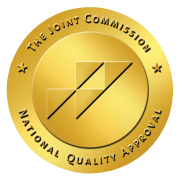Holiday Blues and “Christmas Depression”: What Is It?
It’s supposed to be the time of year where everyone and everything is cheerful, right? Says that are merry and bright. The most wonderful time of the year! Tis the season to be jolly. There’s no place like home for the holidays.
It begs the question: why are so many people sad during the holidays? If you are feeling sad during the holiday season, you are not alone.
Christmas depression, also known as the “holiday blues,” is a type of depression that some people experience during the holiday season. This can be due to various factors, including increased stress, financial worries, and feelings of loneliness, loss, or isolation.
Some people may feel overwhelmed by the pressure to have a perfect holiday or they may be dealing with the lasting devastation of losing a loved one. There may be relationship problems or work-related stress.
For many reasons, the holiday season can be tough. This is something that is felt my many people around the world.
When Are the Holiday Blues More Than Sadness?
Sadness is a normal emotion that everyone experiences from time to time. It’s a natural response to life events such as losing a loved one, breaking up, or disappointment. Sadness is a passing emotion that comes and goes, and people can usually cope with it and move on.
Depression, on the other hand, is a more severe and persistent form of sadness. It’s a mental health disorder characterized by persistent sadness, hopelessness, and a lack of interest or pleasure in activities. Depression can also cause physical symptoms, such as changes in appetite, sleep patterns, and energy levels. And it may require depression disorder treatment in Newport Beach.
What Causes “Christmas Depression”?
Depression can be severe enough to interfere with a person’s ability to carry out their daily activities and can last for weeks, months, or even years. It’s important to seek help from a mental health professional if you are experiencing symptoms of depression that are persistent and interfere with your daily life.
Sometimes the holidays are enough to make a person aware of a depression that has been in their life for a while. Here are some common causes of depression.
- Genetics: Depression can run in families, which suggests that there may be a genetic component to the disorder.
- Brain chemistry: Depression may be caused by an imbalance of neurotransmitters, chemicals that transmit messages in the brain.
- Environmental factors: Stressful life events, such as a loss or trauma, can trigger depression. Even the difficulties that come with the holiday season can be an environmental trigger.
- Medical conditions: Certain medical conditions, such as a thyroid disorder or cancer, can cause depression.
- Substance abuse: Alcohol or drug abuse can contribute to depression. And the holidays are often trigger events for people with substance use disorders. Relapse may occur and this can contribute to depression and a dangerous cycle of drug use.
It’s important to note that depression is not a sign of weakness, and it’s not something that a person can simply “snap out of.” If you’re experiencing symptoms of depression, it’s important to seek help from a mental health professional.
CBT Treatment Options for Depression or Christmas Depression
Cognitive behavioral therapy (CBT) is a type of therapy that focuses on the relationship between thoughts, feelings, and behaviors. It is often used to treat depression because it can help people to identify and change negative thinking patterns and behaviors that contribute to their depression.
During CBT for depression, a therapist will work with the individual to identify their negative thoughts and beliefs about themselves, others, and the world around them. They will then help them challenge these thoughts and beliefs and to replace them with more realistic and positive ones.
CBT for depression may also involve teaching the individual coping skills and strategies for managing stress and negative emotions. This may include relaxation techniques, problem-solving skills, and strategies for improving social support and communication.
Cognitive behavioral therapy can be done in a one-on-one or group setting, even on Zoom or over the phone. The number of sessions needed will depend on the severity of the individual’s symptoms and their progress in therapy. CBT sessions are typically held weekly and may last 30-60 minutes.
TMS for Christmas Depression
Something you might not have thought about or even heard of before is something called TMS.
Transcranial magnetic stimulation (TMS) is a non-invasive treatment for depression that uses magnetic fields to stimulate specific areas of the brain. It is typically used as a treatment option for people who have not responded to other forms of depression treatment, such as medication and therapy.
During a TMS treatment for Christmas depression, a device is placed against the person’s scalp, and it generates a magnetic field. The magnetic field activates the neurons in the targeted area of the brain, which can help to improve symptoms of depression. If you are interested in TMS treatment for depression in Newport Beach, CA, Lido Wellness Center can help.
If you’re experiencing Christmas depression, it’s important to remember that you’re not alone and that it’s okay to seek help.
Many resources are available to support you, including therapy, support groups, EMDR, and outpatient mental health treatment. If you think you need help with your depression, call us today. Our team can explain all these options and help you decide the best route for your wellness.




